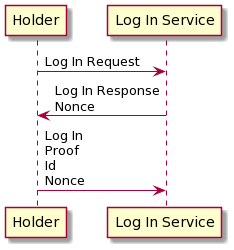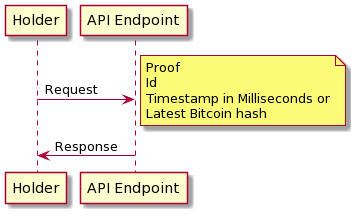9 releases (stable)
| 2.2.1 | Jun 6, 2023 |
|---|---|
| 2.1.0 | Apr 4, 2023 |
| 2.0.0 | Feb 16, 2023 |
| 1.3.0 | Nov 30, 2022 |
| 1.0.0-pre3 | Jul 13, 2021 |
#487 in Authentication
521 downloads per month
63KB
1.5K
SLoC
Oberon
A succinct ZKP protocol for authentication. It works by using techniques similar to Identity-Based/Attribute-Based signatures.
Executive Summary: Oberon allows endpoints to issue multi-factor capable tokens to consumers who can prove their validity without disclosing the tokens themselves and without requiring email, SMS, or authenticator apps. Endpoints only need to store a single public key and not any tokens. An attacker that breaks into the server doesn't have any password/token files to steal and only would see a public key. The proof of token validity is only 96 bytes while the token itself is only 48 bytes. The issuing party and verifying servers can be separate entities.
Languages
Oberon is implemented for Rust, Go, WebAssembly, PHP8, Python, and C/C++ via FFI.
Building
Rust
cargo build --release
The binary is created in target/release/liboberon.so
WebAssembly
wasm-pack build --target=web -- --features=wasm
PHP8
You must have PHP8 installed to complete the build. The Dockerfile in this repo
already sets up the necessary environment.
docker build -t oberon-php -f Dockerfile.php .
docker run --rm -v $PWD:/data -w /data -t oberon-php cargo build --release --features=php
Python
Building python requires Python 3.7 and up and maturin
maturin develop --cargo-extra-args="--features=python"
C/C++
To expose the non-mangled functions that are compatible with C/C++ use
cargo build --release --features=ffi
In depth details
The cryptography can be found here
First steps require generating keys
The secret key can be generated using distributed key generation methods also but is outside the scope of this crate.
The public key can be given to any party that needs to verify tokens and token proofs.
Tokens are generated for parties that need to authenticate. API endpoints or users can be token holders.
use oberon::*;
use rand::prelude::*;
fn main() {
let mut rng = thread_rng();
let sk = SecretKey::new(&mut rng);
let pk = PublicKey::from(&sk);
// identifier for a user
let id = b"abc@example.com";
let token = Token::new(&sk, id).unwrap(); //only None if identifier yields invalid data
assert_eq!(token.verify(pk, id).unwrap_u8(), 1u8);
// Generated by the verifier
let nonce = b"123456789012345678901234567890";
// Token holder makes a proof, no blindings (more on that later)
let proof = Proof::new(&token, &[], id, nonce, &mut rng).unwrap(); // only None if identifier yields invalid data
// Verifier receives the proof
assert_eq!(proof.open(pk, id, nonce).unwrap_u8(), 1u8);
// Blindings can be applied to support multi-factor authentication and keeps the token from being stored in plaintext.
// Pin number
let b1 = Blinding::new(b"1234");
// HSM secret
let b2 = Blinding::new(b"0102d9d1-4777-40e4-9217-1e2d9591706c");
let blinding_token = token - b1;
let blinding_token = blinding_token - b2;
// Token holder makes a proof, with two blindings
let proof = Proof::new(&blinding_token, &[b1, b2], id, nonce, &mut rng).unwrap(); // only None if identifier yields invalid data
// Verifier receives the proof, no blindings required
assert_eq!(proof.open(pk, id, nonce).unwrap_u8(), 1u8);
}
The idea is that the protocol can be used in a three-pass model like logging into a service or a single-pass model for API endpoint use.
Three pass model

One pass model

Dependencies
~1.8–10MB
~107K SLoC